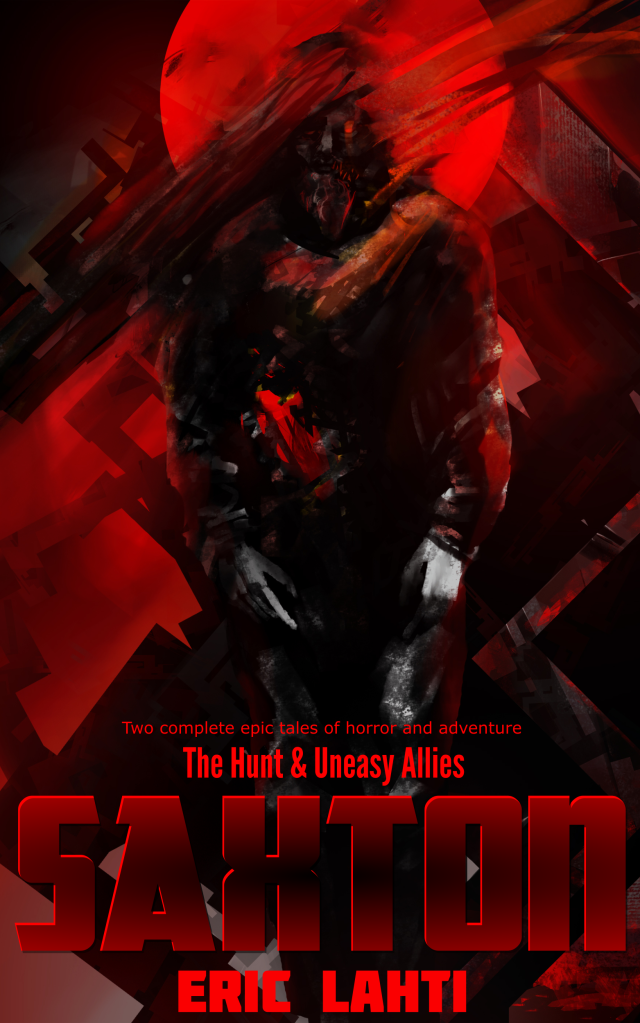
Insert your own joke here.
A couple years ago I was working on a programming project and we were having issues. Our program manager let me know and I set to work on fixing things. One day, without any intervention from me, the problems stopped happening. When I explained what was going on, the PM simply said, “FM.”
FM?
Fucking magic.
Software, especially the multi-tier stuff I work on, has its own set of rules. It’s complicated enough that sometimes completely unforeseen issues creep in and disappear as things like network load change. There’s precious little you can do about some of those things. If the data ain’t getting where it’s supposed to go, it ain’t getting where it’s supposed to.
In my writing persona, some of my stories have dabbled in the occult and touched on magic, but with the Saxton series I’ve got a full-on bruja wandering around. For the uninitiated, bruja is Spanish for witch. Brujeria is witchcraft. Like all witchcraft, it’s an involved art, learned over generations of trial and error. I’m hardly qualified to speak to its efficacy, so we’ll just say it works.
Now, Renee McMasters is a bruja, and a very powerful one. If you’ve read The Clock Man, you’ve come across her, but haven’t experienced what she’s capable of. Save for the way she took over the bogeyman (kind of gave away a plot point there) and sent him after her enemies, she’s mostly just a woman who inspires respect in people. And tries to kill Saxton with poisoned flan.
In Uneasy Allies, which will be the first Saxton story, Renee gets to stretch her legs and readers will get a taste of her abilities. I wanted to make her realistic, show what and where her powers stem from, but realistic magic doesn’t flow as well in an action story. Perhaps later stories will explore those topics, but for now I had to break with the realistic side of magic and make her abilities work in a compressed narrative. She won’t have the time to spin a traditional spell when all hell is breaking loose.
This is not to say I didn’t study up on magic a bit. It’s a pretty common tool in fiction and there are those who do it well and those who do it poorly. In my research I found a bunch of rules for using magic in fiction.
- Magic should be limited and not used a Deus ex Machina solution.
- Magic should have a cost associated with it.
- Magic shouldn’t be all-powerful.
- Magic should be difficult to learn
And on and on and on and on. The general gist of using magic in fiction comes down to one very simple rule: don’t let the story be about the magic. Magic is just some stuff that happens, a tool for causing or resolving events; it’s like a gun but for magicians. And like a gun, magic isn’t the easiest thing to wield.

If you recognize who this is, you get a gold star.
Fictional magic is quite different from it’s more realistic counterpart, but both of them come down to hacking reality. That’s the genesis of Renee’s magic in the Saxton series: she’s basically got the ability to see and impact the world around her more than the rest of us.
Her cost for using magic will eventually be explored, but for now it’s not. She doesn’t have all the power in the world, but she’s pretty tough. And she’s the only character in the story who has that kind of power.
So, did I follow the rules? Kind of. For the most part. But, let’s face it, this is fiction and I didn’t get into this business to do what everyone else is doing. Sometimes you’ve got to make up your own rules and just make sure they work with whatever story you’re peddling. The last thing you want your audience to do is wonder what just happened.

When your readers get this look, you’ve lost.
Within certain confines, playing with magic and its abilities in fiction is perfectly acceptable. As long as it works, it’s all good. Besides, it’s fucking magic. Have fun with it.
Saxton: Uneasy Allies should be dropping early next month.












